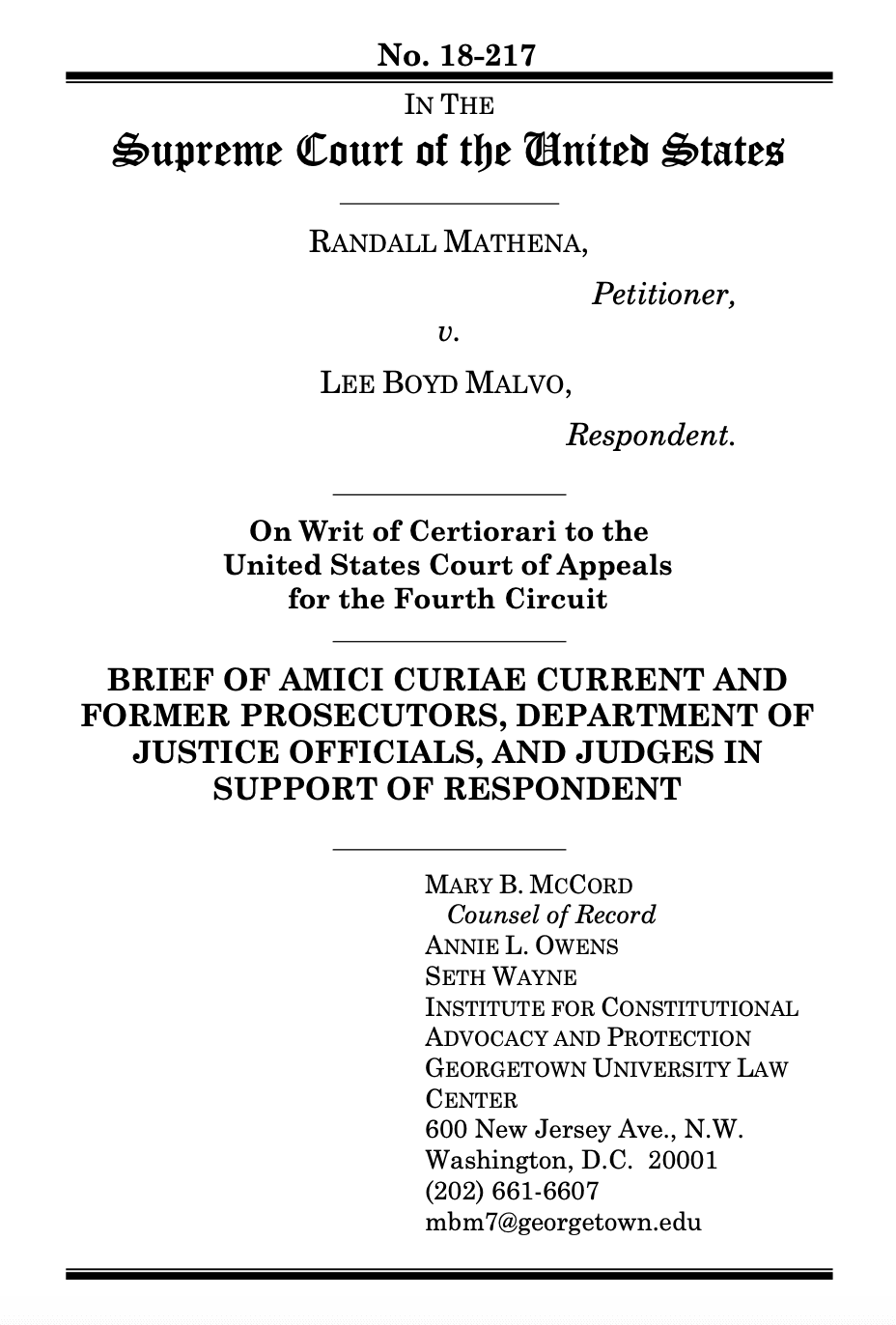
Summary of Argument
Prosecutors and judges recognize that every homicide is tragic for victims and survivors. The punishment for those found guilty of such crimes should reflect the seriousness of the offense. But prosecutors and judges also have a strong interest in ensuring that those punishments are fair and proportionate, taking into account not only the circumstances of the crime and its impact on victims and survivors, but also the characteristics and culpability of the offender.In a series of decisions culminating in Miller v. Alabama, 567 U.S. 460 (2012), and Montgomery v. Louisiana, 136 S. Ct. 718 (2016), this Court recognized that “children are constitutionally different from adults for purposes of sentencing.”Miller, 567 U.S. at 471. The Court established a clear rule that “life without parole is an excessive sentence for children whose crimes reflect transient immaturity” and therefore violates the Eighth Amendment when applied to those offenders.
Montgomery, 136 S. Ct. at 735; Miller, 567 U.S. at 470, 479–80 (before sentencing a juvenile to life without parole, a sentencer must “distinguish[] . . . between ‘the juvenile offender whose crime reflects unfortunate yet transient immaturity, and the rare juvenile offender whose crime reflects irreparable corruption’”). Accordingly, a sentence must “tak[e] account of an offender’s age and the wealth of characteristics and circumstances attendant to it.” Id. at 476. This constitutional principle carries equal weight regardless of whether the initial sentencing occurred under a mandatory or discretionary scheme.
Applying this rule to all juvenile offenders will ensure that no child “whose crimes reflect the transient immaturity of youth,” Montgomery, 136 S. Ct. at 734, receives a constitutionally disproportionate sentence.The Commonwealth and its amici argue that, after having made clear that a sentence of life without parole is unconstitutional for the “vast majority” of juvenile offenders, Montgomery, 136 S. Ct. at 734, this Court should now ignore that holding and narrowly focus on the purportedly fact-specific outcomes in Miller and Montgomery. But this approach violates the longstanding rule that, “[w]hen an opinion issues for the Court, it is not only the result but also those portions of the opinion necessary to that result by which we are bound.” Seminole Tribe of Florida v. Florida, 517 U.S. 44, 66–67 (1996). Moreover, even if one disagrees with the underlying rationale in Miller and Montgomery, the integrity of the criminal justice system is based on its uniform and fair application. To create a double standard now, in which juveniles sentenced under state rules that prescribe mandatory sentences receive greater protections than those sentenced under discretionary regimes, would undermine the principles on which our criminal justice system is based, adversely impacting the ability of law enforcement, prosecutors, and judges to carry out their responsibilities effectively.